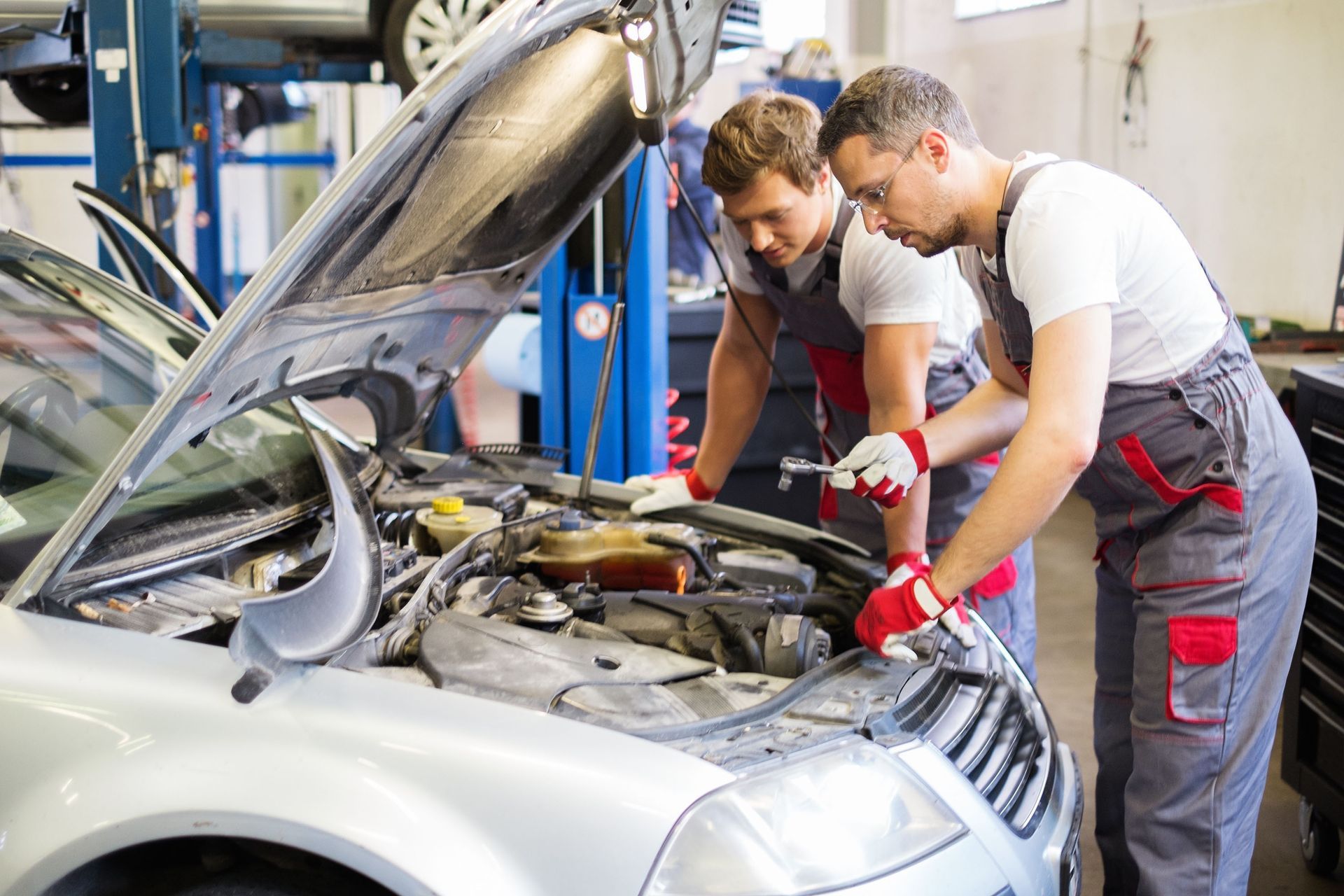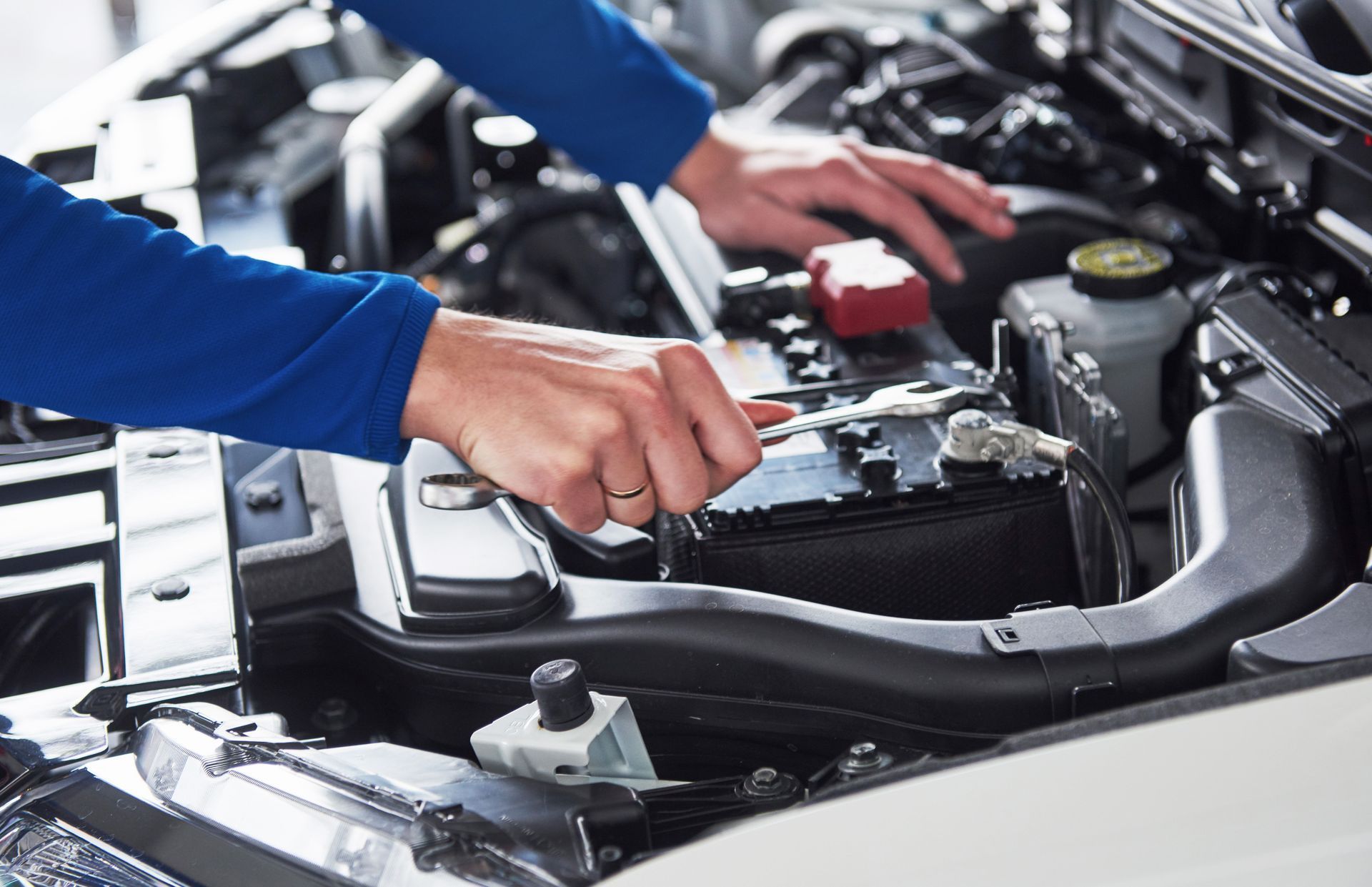The Top 6 Auto Repair Shop Myths Busted
The world of auto repair is shrouded in myths that can mislead vehicle owners. Often, these misconceptions lead to unnecessary expenditures and inappropriate repair decisions. Understanding these myths is crucial for vehicle owners to make informed decisions and avoid being misled. Many consumers don't question or fact-check the automotive advice they receive, yet the repercussions of these myths are significant. By debunking these common misconceptions, vehicle owners can approach their local auto repair shop with confidence and assurance.
Myth 1: Dealerships Are the Only Option for Quality Repairs
Dealerships often market themselves as the gatekeepers of quality auto repairs, suggesting that their services are unparalleled. This narrative is supported by aggressive marketing strategies that prioritize branding over the realities of the service provided. However, the truth is that many independent auto repair shops offer services that are on a par with or even superior to those provided by dealerships. Vehicle owners should recognize that expertise in auto repairs isn’t confined to the dealership; rather, numerous knowledgeable technicians operate independently. According to the U.S. Bureau of Labor Statistics, there are more than 794,000 auto service technicians, many of whom bring their expertise to independent repair shops.
The landscape of independent auto repair shops has transformed dramatically over recent years. Modern independent shops often boast state-of-the-art technology and employ certified technicians who are well-versed in various vehicle brands and models. The availability of digital diagnostic tools allows these independent shops to compete fiercely with dealerships. Furthermore, these shops often offer a diversity of services that can be customized to meet individual needs. Consumers should feel confident exploring independent auto repair services as viable alternatives to dealership services.
Myth 2: Premium Fuel and Oil are Always Better for Your Car
The belief that premium fuel is universally beneficial is a myth that leads many consumers to spend unnecessarily. Premium fuel is designed for high-performance engines that require higher octane levels to prevent knocking and maximize efficiency. For most vehicles, regular fuel suffices, and using premium on cars not designed for it provides no tangible benefit. Vehicle owners should consult their vehicle manual or manufacturer recommendations to determine the appropriate fuel type. However, by misunderstanding fuel types, many consumers overspend on higher-grade fuels that do not enhance performance.
While premium oil can offer advantages under certain conditions, it is not always necessary for the average vehicle. Cars that undergo extreme driving conditions or have high-performance engines benefit from the enhanced protection premium oils provide. For standard driving conditions and regular use, conventional oil often serves its purpose adequately without additional cost. It's important to understand when premium oil delivers benefits and when it merely adds unnecessary expenses. Educated consumers can make informed choices about oil types that align with their vehicle’s real-world needs.
Myth 3: DIY Repairs Are Just as Effective
Many vehicle owners are drawn to DIY repair projects, attracted by the potential savings and sense of accomplishment. The internet offers a wealth of tutorials and guides, making DIY seem accessible to novices. However, these resources often oversimplify the complexity involved in automotive repairs. Despite seeming cost-effective, DIY repairs can become costly if errors necessitate professional correction. The allure of DIY should be balanced with an understanding of personal skill limitations and the potential risks involved.
DIY repairs, while appealing, often involve challenges that are not immediately apparent to amateurs. The lack of professional-grade tools and scripts can result in subpar repairs and even safety hazards. Furthermore, laypersons may misdiagnose issues due to incomplete understanding, leading to wasted time and resources. Professionals at your local auto repair shop possess the expertise and equipment that ensure accurate and reliable repairs. These challenges underscore the risks and responsibilities associated with undertaking automotive repairs independently.
The advance of vehicle technology has significantly complicated the repair landscape, making DIY repairs more challenging. Modern vehicles come equipped with intricate computer systems and electronic components requiring specialized knowledge and tools for proper repair. The average car owner is unlikely to have the diagnostic equipment and technical expertise necessary to address complex faults. Relying on expert technicians at an auto repair shop ensures that repairs cater to these complexities efficiently. Given the technological sophistication of current vehicles, professional intervention is often more viable and prudent than DIY efforts.
Myth 4: Higher Repair Cost Equals Better Quality
This myth originates from the common belief that price is correlated with value; however, this is often a misrepresentation in the case of auto repairs. High pricing may be driven by a dealership's brand prestige rather than the inherent quality of work performed. Consumers should evaluate services based on quality indicators such as technician expertise and repair outcomes rather than focusing solely on cost. The belief that higher cost guarantees superior quality frequently leads to unnecessary expenditures. Vehicle owners are encouraged to scrutinize repair services beyond their price point for more meaningful assessments.
Real quality in auto repairs is characterized by factors beyond the cost of service. Certifications, such as those from ASE, signal a technician’s expertise and commitment to industry standards. Additionally, customer reviews and testimonials provide insight into the reliability and service quality of an auto repair shop. Facilities with well-maintained equipment and professional conduct provide visible signs of service dedication. Paying attention to these indicators enables consumers to make more informed decisions based on substantial quality criteria.
Myth 5: Your Friend's Recommendation Is Always Best
Personal anecdotes from trusted friends significantly influence decision-making processes, including choosing an auto repair shop. While they have good intentions, these recommendations may not align with a vehicle's specific needs or the owner's expectations. The automotive needs of individuals vary, impacting the effectiveness of recommendations based solely on familiarity. Objective evaluation of recommended repairs against set criteria ensures choices are sound. Readers should consider recommendations as starting points rather than definitive guides for repair shop selection.
Supplementing personal recommendations with online reviews, certifications, and shop visits offers a comprehensive perspective of repair options. Modern technology allows consumers to quickly gather insights into repair shops from independent reviews and platforms. Visiting prospective shops allows firsthand assessments of operations, reinforcing online information. Comprehensive research transcends personal biases, cultivating informed decisions. Employing a multi-faceted evaluation method allows consumers to gauge the true potential of a repair shop beyond anecdotal evidence.
Myth 6: Maintenance Schedules Must Rigidly Follow Manufacturer Guidelines
Automobile manufacturers provide maintenance schedules as baseline recommendations for vehicle care. These guidelines serve as general references based on average usage patterns and standard conditions. However, alignment with real-world driving styles and conditions can necessitate deviations from these manufacturer prescriptions. Adjusting maintenance schedules to reflect individual use patterns boosts vehicle longevity and performance. Understanding manufacturer guidance as flexible, rather than prescriptive, empowers owners to customize vehicle care effectively.
Individual driving environments significantly impact maintenance needs and frequency. Harsh weather, urban driving, or extreme conditions can demand more rigorous care compared to the standard guidelines. Manufacturer schedules may not account for such variability, highlighting the need for owner awareness in maintenance planning. By identifying personal driving conditions, owners can proactively modify maintenance frequencies and procedures. Tailored maintenance schedules enhance safety and efficiency, aligning vehicle care with real-world usage patterns.
Understanding and debunking common auto repair myths prevents misinformation from leading to costly mistakes or ineffective vehicle care. Recognizing the abundance of resources and expert opinions available ensures owners choose solutions grounded in evidence and insight. Armed with the right knowledge, you can be assured that you'll make the right decisions when turning to the help of an auto repair shop like Eagle Automotive & Transmission. Give us a call today for a free estimate!




Share On: